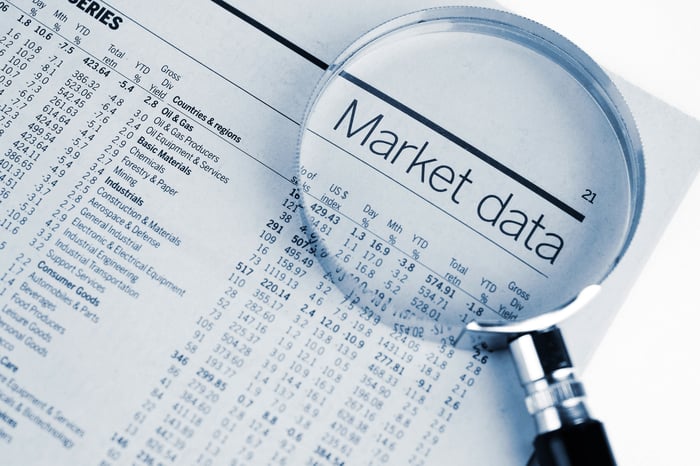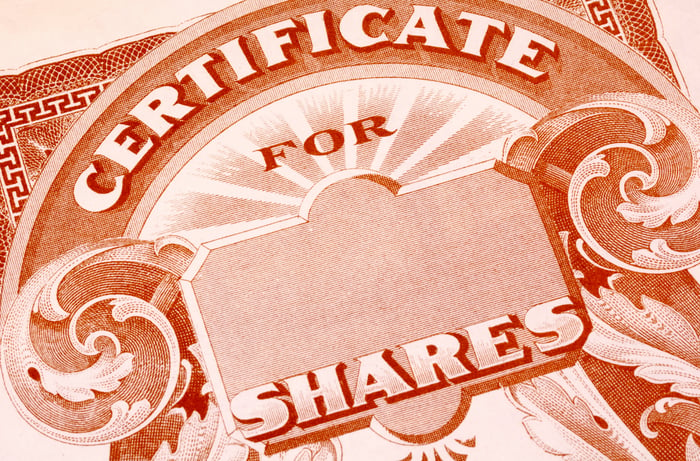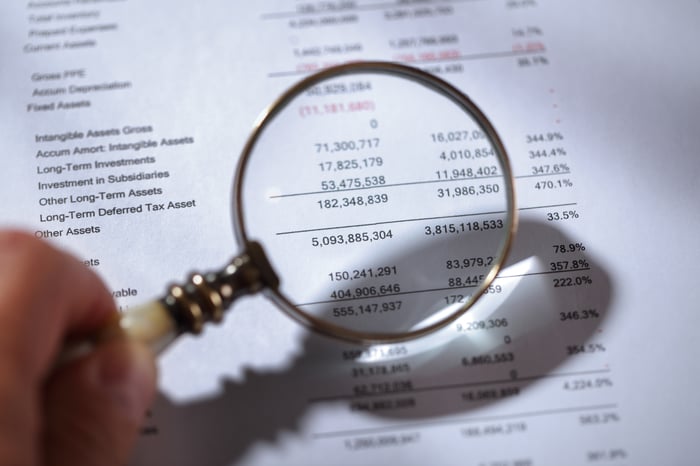For the past three months, it's not the pandemic that's been creating all the buzz on Wall Street. Rather, it's retail investors.
Beginning in mid-January, retail investors on Reddit's WallStreetBets chatroom began banding together to buy shares and call options in stocks with very high levels of short interest. The goal of this strategy was to effect a short squeeze -- i.e., an event where short-sellers (pessimists) flee for the exit all at once, which can cause a rising share price to skyrocket higher.
Quite a few of the stocks targeted by the Reddit community moved higher, with video game and accessories retailer GameStop representing the face of the retail movement.

Image source: Getty Images.
Bad news: Many of the most popular Reddit stocks are extremely pricey
But after three months of retail investors attempting to exert their influence in the market, one thing has become crystal clear: Their assessment of what's "cheap" doesn't make a lot of sense.
After perusing various social media sites, I've come across three ultra-popular Reddit stocks that the retail investment community believes are cheap or undervalued: movie-theater chain AMC Entertainment (AMC 8.22%), Canadian marijuana stock Sundial Growers (SNDL 2.19%), and clinical-stage veterinary drug and diagnostics company Zomedica (ZOM -4.33%).
While many of the reasons behind their supposed cheapness varies from company to company, one of the few constants I've witnessed is the argument that their current share prices are significantly lower than their all-time highs. As of the closing bell on Monday, April 12, a share of AMC, Sundial, and Zomedica could be respectively purchased for $8.62, $0.93, and $1.12.
For some context here, AMC shares traded north of $35 in late 2016. Meanwhile, Sundial and Zomedica have traded as high as $12 and $3, respectively, within the past couple of years.
The issue with this argument is that share price alone provides no context into a company's relative valuation without taking outstanding shares into account.

Image source: Getty Images.
For example, when AMC Entertainment's share price topped $35 in late 2016, its market cap neared, but never crossed, the $4 billion market-cap threshold. Today, with AMC's share price at $8.62, it boasts a market cap of close to $4.3 billion.
Put another way, its share price has declined by around 75% since late 2016, but its market cap has grown by roughly 15%, all because the company's outstanding share count has ballooned higher. In reality, AMC has been historically pricier over the past two months than at any other time in its publicly traded history.
The same can be said for Sundial. Shortly after it became a public company, shares of Sundial hit $12, equating to a $1.1 billion market cap. Today, shares of Sundial are going for $0.93, yet the market cap is around $1.54 billion.
In less than two years, Sundial's share count has grown from less than 100 million to 1.66 billion outstanding. As a result, it's a pricier company now, at less than $1 a share, than it was when it had a $12 share price.
To round things out, the same is true for Zomedica. In June 2018, when the company's share price quickly jumped to about $3, its market cap hit approximately $275 million. Today, with a $1.12 share price, Zomedica's market cap is nearly four times as high ($1.08 billion). In less than three years, Zomedica's outstanding share count has rocketed from a little over 90 million to 947.3 million. At no point in its history has Zomedica been this pricey.

Image source: Getty Images.
More bad news: They're fundamental and/or balance sheet disasters, too
To make matters worse, it's not just that retail investors are bypassing a company's outstanding share count when making a determination if it's cheap. They're also overlooking some very serious operating or balance sheet flaws.
For instance, Zomedica was a clinical-stage company until the first commercial sale of its Truforma diagnostics system for companion animals in mid-March. Although Zomedica now has plenty of cash to fund its research for years to come, it's a billion-dollar stock that began generating revenue less than a month ago. This would seem to be an extremely aggressive valuation for a company that's nowhere near profitability.
As for Sundial Growers, it has plenty of cash -- $719 million Canadian, or $572 million U.S. -- but its management team has no concrete plans how to use it. What's more, the company recently authorized an at-the-market program that could see another $800 million worth of shares sold. After issuing 1.15 billion shares in five months, Sundial isn't quite done pummeling its investors. And the icing on the cake is that the company is one of the slowest-growing in the cannabis space.
Lastly, there's AMC, which I've argued is the most dangerous Reddit stock of all. Whereas Zomedica and Sundial each have a sizable net cash position, AMC is sitting on $11 billion in convertible and non-convertible debt. By 2026, $7.2 billion of this debt comes due, $6 billion of which can't be converted into shares. With the company unlikely to be profitable for years and strangled by its debt, it'll need shareholders to authorize a huge increase in its outstanding share count next month to have any chance at long-term survival.
The point I'm trying to make is this: Operating results and balance sheets always matter. Getting too focused on one metric (short interest) while blatantly ignoring operating or balance sheet red flags can lead to disaster.





